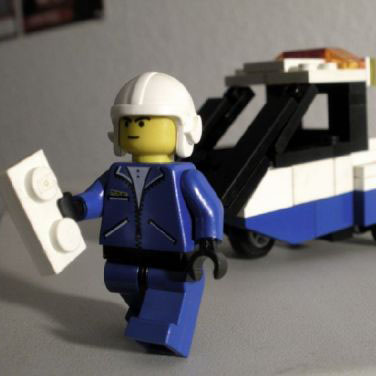I spent the five happiest years of my life in a morgue. As a forensic scientist in the Cleveland coroner’s office I analyzed gunshot residue on hands and clothing, hairs, fibers, paint, glass, DNA, blood and many other forms of trace evidence, as well as crime scenes. Now I'm a certified latent print examiner and CSI for a police department in Florida. I also write a series of forensic suspense novels, turning the day job into fiction. My books have been translated into six languages.
I like all the interesting, different, bizarre stories that make up the crimes that have happened that we have to investigate. I dislike being 'on call' and knowing you can be interrupted at any moment of the day and have to go to a crime scene, even if it's the middle of the night or a holiday. I've also had to change vacations because I have to testify in a trial. I hate that.
It would still be discoverable up to a point. How much dilution it could take, I'm afraid I don't know.
Worrying that I might have missed a piece of evidence at a crime scene or in a lab process.
Interesting question, but I doubt I can be of much help. A body can do one of two things after death--decompose or desiccate. So it might turn into sludge or it might become a mummy. It might depend on temperature or pH levels (more relevant if the car was buried) to determine which way it would go. Being sealed would definitely slow the process to a crawl. I had a body in an attic once that was partially wrapped in plastic, and after three years the wrapped areas still had plenty of flesh and the unwrapped parts were down to bone.
Hospice Nurse
 How did you feel with the passing of your first patient?
How did you feel with the passing of your first patient?
Bracketologist
 Where do you think the Selection Committee needs the most improvement?
Where do you think the Selection Committee needs the most improvement?
Meter Maid
 What's the meanest thing anyone's ever said to you?
What's the meanest thing anyone's ever said to you?
See above.
Take as many science courses as you can. Visit all the crime labs in your area, talk to people, and try to get an internship in one or more of them.
1. Review earlier answers to similar questions.2. Take as many science classes as you can.3. Check out the websites of the American Academy of Forensic Sciences and the International Association for Identification and any others you can find, and look at their Employment Opportunities section. Job postings will tell you what qualifications are required.4. Call all the crime labs in your area (city, county, state and any other location where you might want to work) and ask what degrees their staff have and what are required. (For instance my agency only requires a HS diploma but we all have at least a B.S.) Every agency will have their own requirements. Best of luck to you!!!!
-OR-
 Login with Facebook
Login with Facebook (max 20 characters - letters, numbers, and underscores only. Note that your username is private, and you have the option to choose an alias when asking questions or hosting a Q&A.)
(A valid e-mail address is required. Your e-mail will not be shared with anyone.)
(min 5 characters)
By checking this box, you acknowledge that you have read and agree to Jobstr.com’s Terms and Privacy Policy.
-OR-
 Register with Facebook
Register with Facebook(Don't worry: you'll be able to choose an alias when asking questions or hosting a Q&A.)